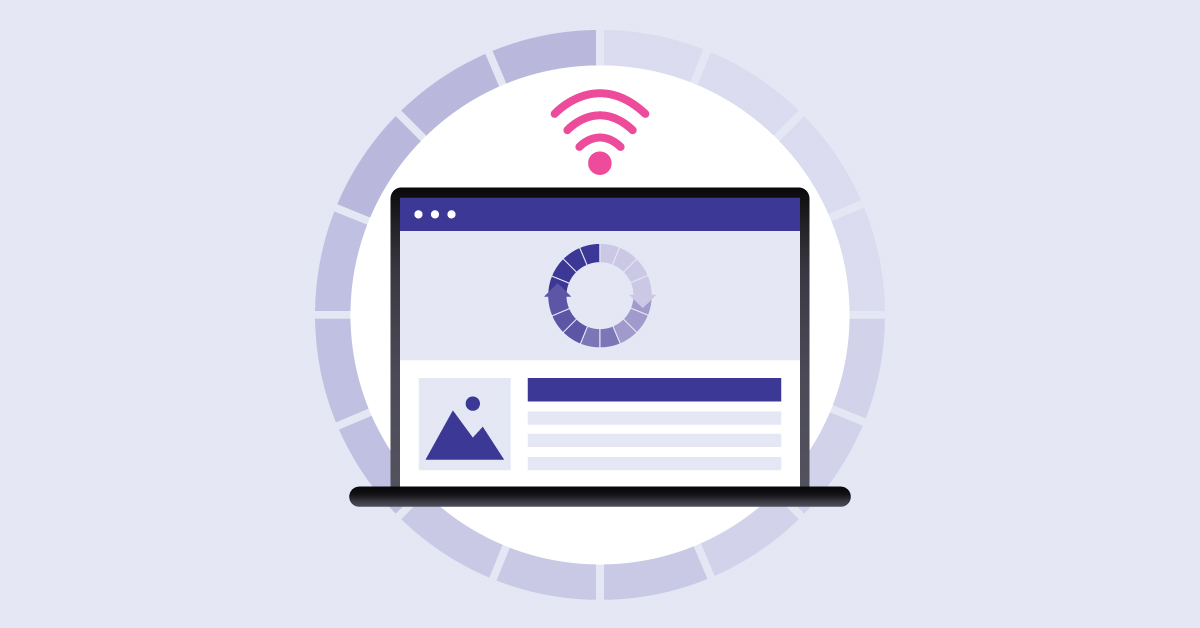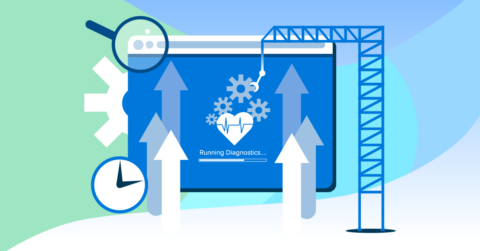
Website Speed In 2024: 7 Tips
05/15/24
Digital donation
Website speed in 2024 continues to remain as important as ever. Take it seriously, and everything your organization does online improves. Neglect website speed, and you make it harder for you and your team to get the results you want.
Today we are looking at four main reasons a fast website is still essential. We’ll also cover seven actionable tips you can follow to improve your website speed in 2024.
The Significance of Website Speed In 2024
We all know intuitively that website speed is important. But what are the main benefits you stand to gain when you prioritize it? Here are four of the most important:
User Experience
First and foremost, website speed improves your user experience. This is essential regardless of your industry. Do you work at a nonprofit? A big company? Are you a “solopreneur” trying to make more money? A fast-loading website will positively impact overall user satisfaction, which affects everything else.
SEO Impact
SEO continues to be relevant for just about all organizations. We all know that high-ranking pieces of content get you found faster – but did you know how important website speed is? Search engines prioritize fast websites. This leads to higher rankings and improved visibility. The implication is obvious: neglect website speed, and your slow site will negatively harm your SEO results.
Conversion Rates
Lead generation is an essential aspect of any business. It’s how you find people interested in what you have to offer, as well as convert them into paying customers. That said, your results suffer with a slow website. People simply won’t stick around if you make them wait too long. This is true for everything from fast-loading landing pages to the presentation of your content. Want better conversion rates? Time to take website speed seriously.
Mobile Responsiveness
Lastly, website speed is also important for mobile responsiveness. As the number of people who prefer mobile browsing continues to rise, web loading speed becomes more relevant than ever. Much of your audience will interact with your web content through their smartphones and tablets. If you want to ensure a seamless experience, fast website speed is one of the ways you do it.
7 Tips To Increase Website Speed In 2024
Now that we know why website speed is important, how do you make your website faster? What follows are seven tips that any organization can implement to speed up their website loading times. As always, we’ve made these tips as actionable as possible. That said, there are two things to keep in mind:
- You don’t need to act on every single one to get better results with your website speed
- A few of these are rather technical, and are best approached with the help of an expert
Let’s check them out below:
1) Optimize Image Size
Most websites have a bunch of images throughout their various pieces of content. While these improve the overall user experience, they also slow things down. The solution is usually to compress images without compromising on quality. There are many tools that make this rather easy – Adobe Photoshop and TinyPNG are just two of them. You can also consider lazy loading. This means that you prioritize loading images that are visible to the user and delay the loading of off-screen images until they are needed.
2) Minify Files
It’s the same thing with files. While files are an essential part of the overall user experience online, they have the tendency to decrease website speed. That’s why you should consider minifying them. In practice, this will involve using HTML, CSS, and JavaScript files by removing unnecessary characters (comments and white spaces, for example) to reduce file sizes. Be sure to look up best practices, as this often sounds more complicated than it actually is in practice.
3) Optimize Server Response Time
Did you know that you can improve your overall server response time by simply upgrading to a faster web hosting provider? This is a quick win – assuming you pick the right hosting provider. Be sure to read about the best provider to use. This will vary depending on your website’s needs.
4) Minimize HTTP Requests
HTTP requests play an important part in any data exchange on the web. That said, they can often slow down your website. Even as essential as they are, they can (and should) be limited. You do this by joining multiple CSS files into one and reducing the use of inline CSS and JavaScript. You can also minimize the use of external scripts for extra speed.
5) Reduce Redirects
Our next tip is similar to the last one: reduce redirects wherever possible. Redirects are essentially a way to send people to a different URL than the one they requested. They are used quite often by brands if they have web pages that are no longer up-to-date. That said, they do have a tendency to slow down a website. The solution? Use direct links whenever possible. This is a fairly easy one to implement and should increase your overall average website speed over time.
6) Optimize Above The Fold Content
“Above the fold” is a reference to physical newspapers. While not the exact same with a web page, the phrase is still used to reference everything that you can see on your screen without scrolling. Prioritize loading above-the-fold content, including text and images visible without scrolling, to ensure a faster perceived loading time. This is also an important part of the overall user experience on your web pages.
7) Regularly Monitor And Test
Lastly, like many of our “listicle” posts, we recommend testing as much as you can. It’s not enough to take action and then forget about things. For a faster website speed, constant monitoring and testing is simply part of the game. So – how do you approach it? Thankfully, there are plenty of tools like Google PageSpeed Insights and GTmetrix that make testing your website speed quick and easy. This is a fast way to identify areas for improvement. It’s also a way to keep tabs on the actions you have taken that have had a positive impact on your website speed.
…
Are you an enterprise, nonprofit or small business looking for help on your website? Give us a shout! We provide a free consultation. Email us at info@lughstudio.com or call us at (718) 855-1919!









